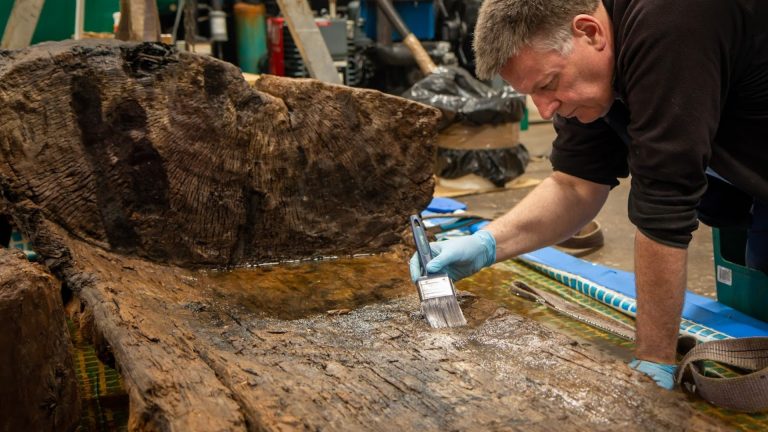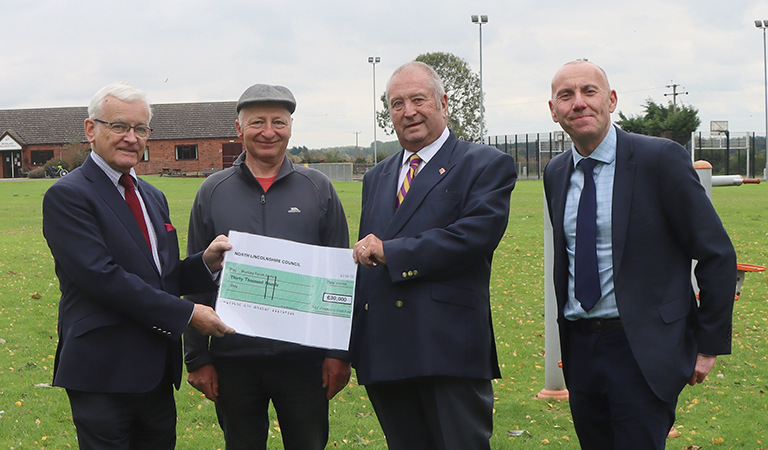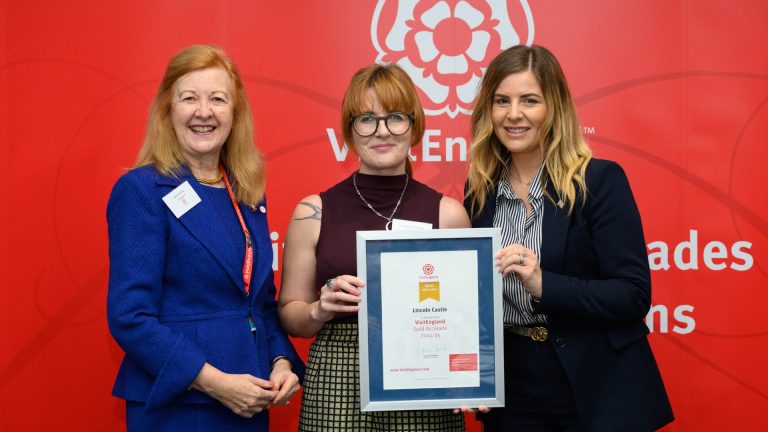WinterLight to bring festive magic to Sleaford
Council homes set for major energy upgrades
South Kesteven is rolling out a large-scale upgrade of its council housing, with 273 properties lined up for improvements designed to lower energy use and cut household bills. The £7.8 million programme includes solar panels, air source heat pumps, and new loft and cavity wall insulation for bungalows and traditionally built houses across the district.
Many of the homes currently hold EPC ratings as low as E. The upgrades are expected to raise their rating to a C, improving warmth, comfort, and overall energy performance. Early estimates suggest residents could save up to £1,400 a year on their bills once the work is complete, alongside reduced issues with humidity, condensation, and mould.
An SKDC spokesperson said: “These improvements will bring peace of mind at a time when energy costs have been soaring. This council’s tenants will see a dramatic drop in their household energy bills because of what we’re doing. So many people will benefit. There’s also a positive outcome in terms of the environment – carbon footprints are reduced, and the project supports a greener future for us all in line with government initiatives.”
The project is supported by a £4.2 million grant from the government’s Warm Homes Local Grant scheme. Work began in August and is scheduled to finish in August 2027. Equans Building Ltd is delivering the improvements and has already completed upgrades in 35 properties.
South Kesteven District Council recently held its first resident engagement event in Ancaster, bringing together the council team, Equans, and technical specialists from Vaillant to help residents understand the upcoming changes and what the new systems will offer.
Image credit: Stock.adobe.com/Jo Panuwat DFestive market brings early Christmas cheer to Grimsby town centre
Grimsby’s Riverhead Square will host its monthly Farmers’ and Craft Market on Friday 21 November, offering visitors an early taste of the festive season ahead of the town’s Christmas lights switch-on.
The event arrives with just weeks to go until Christmas, giving shoppers the chance to browse handmade gifts, local produce, and seasonal treats.
A mix of food, crafts, and homeware stalls will return for the November market, including pork products, artisan cheeses, and baked goods.
Other traders will offer vegan skincare, wax melts, personalised keepsakes, crystals, illustrations, and fresh fruit and vegetables.
The market operates on the third Friday of each month between 9am and 3pm, weather permitting.
Image credit: North East Lincolnshire CouncilViral sensation and Britain’s favourite school teacher James B Partridge to bring Primary School Bangers tour to Scunthorpe
Brigg Town FC completes £1.7m redevelopment
Brigg Town FC has completed a £1.7m upgrade of its facilities, marking a significant investment in one of the world’s oldest football clubs. The redevelopment includes a new 3G floodlit pitch, an expanded and modernised changing pavilion, and a full refurbishment of the clubhouse and function room.
The club, founded in 1864 and operating as a community interest company since 2017, positioned the project as part of a wider effort to broaden local access to sport and community services. New initiatives include additional training programmes for young players, expanded opportunities for girls’ football, and plans for disability and walking football teams.
The enhanced clubhouse and free-to-use function room have already seen increased demand from local groups and private events. The club says rising footfall through both sporting and hospitality facilities has improved financial sustainability.
The redevelopment was supported by a £50,000 contribution from North Lincolnshire Council, which helped unlock more than £1m in further funding. Brigg Town FC continues to compete in the Northern Counties East League Division One.
Rosegarth Square regeneration hits key construction milestones
The redevelopment of Rosegarth Square in Boston has reached several important stages, signalling steady progress on a scheme designed to reshape a significant part of the town centre.
Contractors have finished piling and installed the steel frame for the new multi-purpose building. The structure has been fireproofed and fitted with floor planks, forming the base of what will become a modern community facility.
Activity across the wider public realm is advancing. Groundworks are underway for new seating areas and public art installations. Tree pits have been prepared for future planting, and kerbing is being laid on the eastern side of the site near St Botolph’s Bridge. New walls are also emerging to guide pedestrian routes through the area.
Councillor Dale Broughton, Leader of Boston Borough Council said: “It is great to see so much progress on site since work began on the development at the start of the year.
“This project marks our commitment to bring positive change into Boston and can help breathe new life into our town and borough, turning an unused and unutilised area into an attractive and enjoyable space with new offers, opportunities and services for our residents and visitors to access.”
The next phase will see brickwork begin on the main building and the installation of major artworks. The regeneration is supported by £14.8m in government funding and will create a multifunctional public space running from the St Botolph’s footbridge to the Len Medlock Centre, targeting improved footfall, stronger placemaking and wider economic activity for businesses operating in the town centre.
Bronze Age discovery takes centre stage in Lincoln Museum’s refresh
Lincoln Museum’s major redevelopment is moving towards completion, with plans to showcase a series of significant archaeological finds when the site reopens next year. Among the new features is a redesigned archaeology gallery with interactive elements aimed at giving visitors a closer connection to the region’s past.
One of the headline exhibits will be a three-metre-long Bronze Age log coffin, accompanied by a miniature battle-axe. The artefacts were uncovered in 2018 during routine works at Tetney Golf Course in East Lindsey, drawing international interest due to their rare condition and craftsmanship. The axe still retained its wooden handle, suggesting the man buried with it held a prominent position in his community.
The coffin has since undergone extensive conservation funded by a £110,000 grant from Historic England, with specialists from York Archaeology carrying out the restoration. Research into the coffin’s contents revealed traces of oak and yew branches, alongside evidence of a floral garland and plant materials indicating food offerings.
Following its reconstruction, the coffin was transferred to Lincoln in a carefully managed operation due to its age and fragility. The museum’s conservation team is now preparing it for installation, creating a custom support to ensure it can be safely displayed when the new gallery opens.
Image credit: Lincolnshire County CouncilNew space for teens set for Worlaby
Lincolnshire mum raises £1,081 for Hospital Charity after Daughter’s health scare
Lincoln Castle earns top national recognition
Lincoln Castle has been named one of England’s leading visitor attractions after receiving VisitEngland’s Gold accolade, an award reserved for sites that deliver consistently high-quality experiences. The recognition follows outstanding visitor feedback and a strong performance in a recent assessment carried out by an independent inspector.
The review highlighted the strength of the castle’s historic exhibitions, the high standard of interpretation across the site, and the expertise shown by staff and volunteer guides. The assessor’s overall impression was that the attraction offers a distinctive and engaging experience for visitors of all ages.
The Gold accolade adds to a growing list of honours for the landmark. Earlier this year, Lincoln Castle secured Tripadvisor’s Travellers’ Choice Award, placing it among the top-rated destinations globally. VisitEngland’s annual accolades celebrate attractions across the tourism sector, from heritage sites and gardens to museums and outdoor spaces, recognising locations that excel in visitor experience.
Image credit: Lincolnshire County Council











